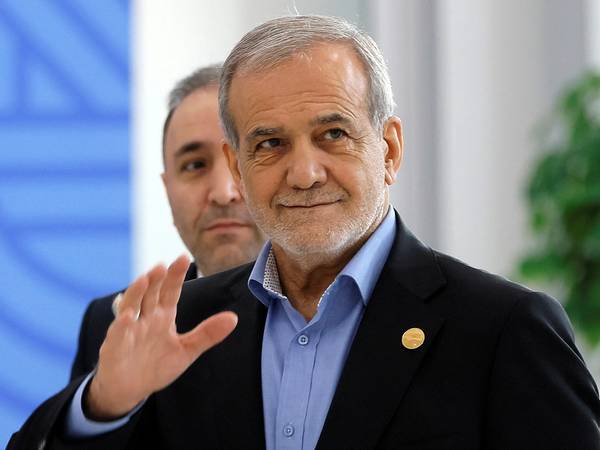The outcome of the US election is irrelevant to Tehran, which will continue its inclusive approach in international relations, Iran's President Masoud Pezeshkian said on Wednesday.
"It does not matter to us who won the US election because our country and system rely on our internal strength and a proud, great nation," Pezeshkian said in his first response to Donald Trump's victory in the US election.
He emphasized that his government’s priority is strengthening ties with Islamic and neighboring countries, insisted that his administration would not adopt a “closed or limited approach” toward expanding relations with other nations.
Iran’s Foreign Ministry, on the other hand, responded cautiously on Thursday to US President-Elect Donald Trump’s victory, reflecting on past US policies and stressing that Tehran would judge the new administration by its actions.
As Trump prepares to return to the White House as the 47th president, a spokesperson for Iran’s Foreign Ministry expressed Tehran’s cautious stance, saying, “We have had very bitter experiences with the past policies and approaches of various US administrations.”
In a statement, ministry spokesperson Esmail Baghaei said the actions of the US government will be the ultimate benchmark for Iran. "What matters to Iran and serves as a criterion for evaluation is the performance of the US government," he added.
Trump’s victory, confirmed with 292 electoral votes, marks his return to the presidency after a four-year hiatus, a win that could bring stricter enforcement of sanctions on Iran, initially imposed after his first administration withdrew from the 2015 nuclear deal. During his previous term, Trump’s maximum pressure policy aimed to cripple Iran’s oil revenue, escalating economic strain on Tehran.
Baghaei went on to say that the US election is solely a decision by the American people, adding, “Now, the American people have made their choice.” He suggested that elections offer a chance for the US to reconsider its approach toward Iran, cautioning that Iran remains attentive to actions, not promises.
The reaction from Tehran was followed by a belligerent statement from a hardline member of the Iranian Parliament’s National Security and Foreign Policy Commission, who issued a warning to Trump, calling on the US to withdraw its military forces from the Middle East.
"We tell Trump, the gambler and killer, to gather CENTCOM’s dogs from West Asia before it’s too late and focus on his own deep internal crises," said Mojtaba Zarei, referring to the US Central Command’s presence in the region.
Trump's return to office has reignited speculation over tougher US policies on Iran next year. The Biden administration had somewhat softened Trump’s “maximum pressure” approach, aiming for a diplomatic solution. This approach saw little progress until October 2023, when Iran’s ally Hamas launched an attack on Israel, leading to over a year of conflict in the region.
